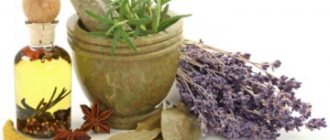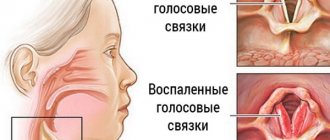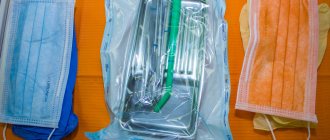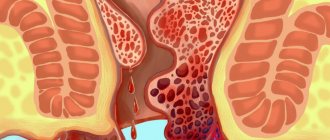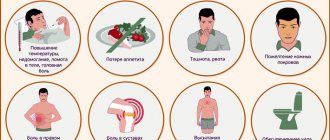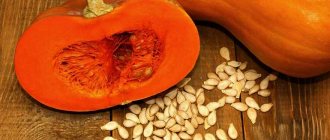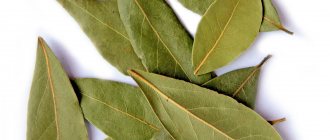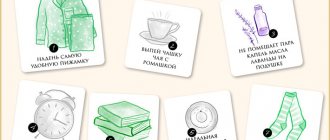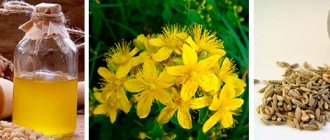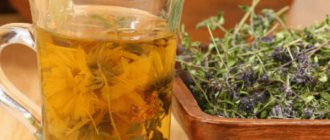Why and what do mosquitoes bite?
For female reproduction, protein is needed, and the female obtains it from the blood of mammals.
Four jaws with long thin needle teeth placed in a long case - this is what the female’s oral organs look like.
The female, ready for mating, makes a characteristic squeak with her wings, and the male, feeding only on nectar, flies towards him.
During her life (from 43 to 119 days), the female lays an average of 150 eggs every two to three days. Moreover, autumn mosquitoes spend the winter and can begin to bite as early as April. The life period depends on the average temperature; the higher it is (25 degrees), the faster the mosquito dies, and at a temperature of 10 degrees it lives a long time - up to four months.
What causes redness and a bump after a mosquito bite?
Mosquito saliva contains an anticoagulant and histamine. After injection, the anticoagulant (hirudin) changes blood clotting; this is necessary so that the female can suck the blood freely for the required time.
Histamine contained in mosquito saliva has the same effect on the human circulatory system as its own - it significantly expands the capillaries to fill them with blood. The mosquito itself needs histamine to facilitate the supply of food - the blood of mammals.
At the time of the bite, under the influence of two factors - decreased blood clotting and the presence of foreign histamine - swelling develops, accompanied by itching, bloating, and pain. This skin reaction to a bite is similar to an allergic one.
The better parents understand which plant juice helps with mosquito bites, the less noticeable the consequences of an encounter with blood-sucking insects will be. Care in choosing a protective agent will help to avoid such serious consequences as allergies and anaphylactic shock, when the help of a doctor cannot be avoided.
Bumps, like mosquito bites, can develop after meeting other insects (bees, midges), leeches, snakes, whose blood contains the same anticoagulants and histamine. Discovered by John Haycraft in 1884, the anticoagulant enzyme hirudin is used today to create drugs that prevent blood clotting.
What to do against mosquito bites?
Preventive mosquito control measures can reduce the number of bites by 90%.
Getting rid of squeaking parasites in your home is not difficult. Modern products produced by industry are quite diverse. There are three groups based on the type of action:
- Protective mechanical.
- Repellent.
- Insect exterminators.
The first group includes ordinary mosquito nets that block access to rooms, mosquito nets for hats and sparse types of fabrics (for example, tulle) that can be used to cover a stroller with a sleeping child.
Repellents - repellents made in the form of creams and sprays can repel female mosquitoes that are selectively sensitive to odors for a long time. Folk remedies, information about which has been collected by many generations of those “bitten,” are varied. Although very few plants are recognized as essential, the smell of which repels parasites: indoor geranium, garden thyme, garden elderberry. Ground cloves together with lemon (orange, tangerine) peels create a lasting aroma. Mosquitoes will not fly into the room if you place a napkin moistened with clove and citrus oils on the windowsill.
The principle of operation of fumigators as devices that destroy insects is based on the use of insecticides. Volatile poisons released when heated are not harmful to humans, but insects die from them.
Fighting the consequences of bites in the forest and park
When in a suburban area with a child, you need to be prepared not only to protect yourself from bites, but also to deal with the consequences. The situation when a baby, who has been thoroughly smeared (sprayed) beforehand, suddenly finds himself bitten, is quite common. This can happen due to the end of the repellent's effect, or due to an oversight (unwrapped), or when biting unprotected places (nose, lips). In this situation, you need to urgently take action, knowing very clearly which plant juice helps with mosquito bites.
Tansy, a plant with tall stems and yellow button flowers, is something to learn to recognize. If you apply crushed leaves of the plant to the bite sites, the itching and burning will decrease.
You can lubricate the bite site with dandelion juice, but this must be done extremely carefully.
Plantain has a slightly less pronounced effect; its leaves, carefully rubbed in your hands, not only stop bleeding, but also relieve itching. True, they need to be changed quite often.
Cold compress for pain
This is one of the best remedies to stop itching and relieve pain. Applying cold to the bite area causes a slight numbness of the skin, which helps relieve swelling and pain. You can take ice from the refrigerator, place it in a plastic bag and wrap it in a thin towel. This compress is applied to the affected area for five minutes. Then it is recommended to take a two-minute break and repeat the procedure. This method is effective during the first day after the bite. If ice is not available, then the affected area of the body can be kept in cool (not ice) water. Do not allow your skin to come into direct contact with ice as this can cause frostbite.
Mosquitoes in the country
Country plants provide greater freedom in dealing with the consequences of bites. You don’t need to undergo any special preparation to remember which plant juice helps with mosquito bites in the country or in the garden
There are always a lot of plants at hand here: spicy plants for seasoning, medicinal plants, vegetables, berries, and fruits. Some of them are constantly present in the garden.
- Parsley (root and leaf). You need to crush its leaves and simply apply it to the bite. The itching goes away quite quickly, the swelling goes away the next day. You need to change it first after 20 minutes, then after an hour. Sometimes once is enough.
- Mint or lemongrass. The bite should be lubricated with squeezed juice, although sometimes there is not enough time for this - then just thoroughly mash a handful of leaves and apply to the itchy area. Improvement occurs almost immediately: the child calms down, the itching goes away, and the redness decreases.
- Thyme (thyme). The paste from the leaves will soothe and relieve pain at the bite site.
Knowledge of techniques with these plants is sufficient to answer the question: “How to anoint a child’s mosquito bite at the dacha?”
Features of treatment in children
It is recommended to treat mosquito bites in a child using traditional medicine, as they are considered safer and gentler on the child’s body.
How to anoint a mosquito bite and how can you quickly relieve your baby of discomfort? The easiest and most affordable way is to fill a bathtub with warm water, pour a handful of sea salt into it and bathe your baby for 15-20 minutes. This time is enough for the itching and burning to disappear.
2 plantain leaves need to be passed through a meat grinder, the resulting pulp should be applied to the skin and secured with a bandage. After 5 minutes the discomfort disappears. The most important rule when treating a child is not to allow him to scratch the bite site, as this can lead to a deterioration in his health.
The itching is gone, the redness remains
The consequences of bites, such as a small bump, swelling, and sometimes a wound, can remain on the skin for a long time. How to remove mosquito bites? What remedies can help?
- The most effective, but for some reason unavailable lately, is considered to be arnica-based cream. The cream is sold in pharmacies and is inexpensive (imported cream is made from goose fat, so it is more expensive). Itching, pain, redness go away within 24 hours. Arnica-based ointments are recommended even in severe cases when no medications help.
- The most affordable treatment is considered to be a soda solution (1 teaspoon per 200 ml of water). Sometimes it is helpful to apply a baking soda cake.
How to lubricate a mosquito bite for a child if there is no arnica and soda does not help? It’s worth trying to apply a banana, several times. An older child can be treated with Zvezdochka balm or adult toothpaste.
Modern medical products are widely available, the well-known ones being “Fenistil-gel”, “Psilo-balm”, “Eplan” liquid, “Rescuer” cream, “Taiga” cream.
All tips given in the article are advisory in nature. Parents should understand that if after a bite the swelling only increases within 24 hours, the itching does not go away, and the child has a fever, an urgent consultation with a doctor is needed.
Mosquito bites are painful, and in some cases painful, fraught with the most unpredictable consequences, for example, terrible itching, swelling, redness and all kinds of suppuration. As for young children, in such cases the situation is much more complicated and can result in acute allergic attacks.
A mosquito bite requires special attention and handling. If you or your child has been bitten by a mosquito, then you need to know what remedies help in such cases (creams, ointments, tablets, etc.), traditional medicine methods.
Most people do not know which plant juice helps with mosquito bites. So, so that you don’t panic if you don’t have the necessary ointment or antiallergic drug on hand, you need to know that there are plants and flowers whose juice will come to the rescue.
Treatment
If a person has been severely bitten by mosquitoes, but the symptoms manifest themselves only in minor swelling and redness of the skin, then treatment can be carried out at home. For this, cream or ointment against mosquito bites from your home medicine cabinet, food from the refrigerator and medicinal plants from the garden will be useful. The victim must be shown to a doctor in the following cases:
- a sharp deterioration in health;
- localization of a mosquito bite in the eye area;
- The size of the resulting spots exceeds 5 cm in diameter.
Sharp temperature rises to 39-40°C several hours after an insect attack, even without severe skin symptoms, also serve as a signal to contact the nearest hospital.
First aid for bites
To stop the spread of swelling and prevent infection from a dangerous infection, you should cool the bite site. To do this, you can use ice cubes placed in a sealed bag and wrapped in thick cloth. A worthy alternative would be a piece of frozen meat or fish, or a package of mixed vegetables. You need to apply ice to the damaged skin for 5 minutes, and then you need to take a short break to prevent frostbite. You can also additionally treat the bite site with any antiseptic solution:
- hydrogen peroxide;
- chlorhexidine or its imported analogue Miramistin;
- 0.02% furatsilin solution;
- vodka without additives or alcohol diluted with boiled water in equal proportions.
Regular 3% table or apple cider vinegar will help prevent the development of edema and inflammation of the epidermis. It should be used in adults at the original concentration. To treat babies, you need to dilute the vinegar with an equal amount of boiled cool water.
If insects attack in an open area, and you don’t have a first aid kit with you, then medicinal plants will help. Plantain and burdock grow everywhere, so finding them is not difficult. Young leaves of medicinal plants should be washed with water and ground until a thick paste is formed. It should then be applied to the swollen skin and secured with a bandage. The procedure must be repeated after the healing agent has dried.
Pharmacological drugs
Even if there is no sensitivity to mosquito bites, the victim should be given an antihistamine. This is especially true for young children who find it difficult to resist scratching their skin. Antiallergic drugs stop the development of edema and quickly reduce the severity of skin itching. The following antihistamine tablets, pills and drops for internal use are most effective:
- Loratadine;
- Zodak;
- Zyrtec;
- Tavegil;
- Suprastin.
All of the above remedies cause drowsiness to one degree or another. Therefore, for several hours after taking the drug, you should not drive a vehicle or do work that requires concentration and attention.
Advice: When it is not possible to see a doctor, and the victim has a fever, you need to give him an antipyretic drug - Ibuprofen, Nurofen, Panadol, Efferalgan, Paracetamol.
If mosquito bites are not uncommon in the place where an adult or child lives, then it is advisable to buy any ointment with antihistamine activity at a pharmacy. Once the package is opened, the shelf life of the external product is significantly reduced, so it must be stored in the side wall of the refrigerator. What balm, gel, cream against mosquito bites can be purchased at the pharmacy:
- Fenistil gel. After applying the product, itching and irritation caused by allergic reactions disappear. The drug also has a local anesthetic effect and has the ability to cool, soften and moisturize the skin;
- Rescue balm. The combined composition of the external product contains sea buckthorn and olive oils, calendula extract, naftalan oil, vitamins A and E, essential oils of rose, tea tree and lavender. Balm Rescuer not only soothes the skin, but also accelerates its regeneration;
- Gistan. The active ingredient of the ointment is the synthetic glucocorticosteroid mometasone. The drug exhibits antipruritic, anti-inflammatory, antiexudative (decongestant) activity;
- Psilo-balm. The active ingredient of the product is diphenhydramine, which has a strong antiallergic effect. After the first application, itching is actively suppressed. Psilo-balm also contains chemical compounds that cool inflamed skin;
- Vitaon. The drug is produced in the form of an oil solution consisting of extracts of medicinal herbs (wormwood, calendula, yarrow, celandine), essential oils of mint and sweet dill, camphor. Thanks to its unique composition, Vitaon exhibits regenerative activity, promoting the restoration of damaged tissues. Also, the external agent is characterized by pain-relieving, wound-healing, anti-inflammatory, and antimicrobial properties.
If a victim of mosquito bites experiences severe swelling of the skin and large allergic rashes, the doctor may prescribe ointments or creams with hormonal components - Advantan, Triderm, Celestoderm. This group of drugs has a wide list of contraindications and side effects. Hormonal medications should be used only on the recommendation of an allergist or dermatologist.
Healing plants and folk remedies
Traditional medicine recipes often contain juices of medicinal plants. Their single-component use is allowed, but the complex effect of herbs has the greatest therapeutic effectiveness. The juice of which plant helps against mosquito bites:
- lemon or peppermint;
- sage;
- parsley;
- Chernobyl (wormwood);
- St. John's wort;
- yarrow;
- sequences;
- thyme;
- elecampane.
To prepare a medicinal product, you need to crush fresh plant materials in a porcelain or wooden mortar. Then, using gauze, squeeze out the released juice, moisten a sterile napkin in it and apply it to the mosquito bite for 30-40 minutes. If you only have dry herbs, leaves and roots in the house, you can prepare a healing infusion. During the brewing process, biologically active substances that have anti-inflammatory, anti-edematous and antimicrobial effects pass into it. The infusion must be prepared according to the following algorithm:
- Pour 3 tbsp into the teapot. spoons of any crushed plant.
- Pour a glass of boiling water and let it brew under the lid for 1-2 hours.
- Filter the dry residue, soak a cotton pad or sterile cloth in the infusion and apply to the site of the mosquito bite.
Citrus juice - grapefruit, lemon, lime - will help reduce the severity of swelling and skin itching. Simply cut the fruit into pieces and regularly wipe the mosquito bite area. This remedy is also an excellent prevention against attacks by blood-sucking insects, which really do not like the essential oils contained in citrus juice.
Recommendation: Soda solutions quickly and effectively eliminate swelling, irritation and skin itching. To prepare them, you just need to dilute a teaspoon of soda in a glass of warm water. Dip a cotton pad into the resulting dilution, squeeze lightly and apply to the bite site.
Danger of mosquitoes
A banal mosquito bite is quite serious and dangerous, since the insect carries the following diseases:
- malaria or swamp fever;
- yellow fever;
- tularemia;
- dirofilariasis;
- hemorrhagic fever (mortality rate 80%);
- mosquito saliva contains filaria larvae, which can penetrate human blood, resulting in elephantiasis and hyperthermia (37 degrees Celsius);
- Lyme disease (borreliosis);
- Japanese encephalitis is an inflammation of the human brain that causes severe neurological disorders and consequences.
It is important to remember that a mosquito bite is similar to the lesion that a bedbug can leave, so you should not confuse the two. However, despite the fact that the bites are very similar in appearance, they have differences that make the lesions easy to distinguish from each other.
Symptoms of an allergic reaction
As a result of a mosquito bite, mild allergic reactions may occur, similar to those that a person experiences when attacked by wasps and bees. In order to provide timely assistance to the victim, you need to know the symptoms of an allergic reaction:
- nausea gradually appears, sometimes severe vomiting occurs;
- excruciating headaches;
- there is an increased body temperature in the affected person, especially in a small child;
- severe redness and swelling occurs at the site of the lesion;
- Quite rarely, consequences such as bronchospasm, vasomotor rhinitis, urticaria occur.
If such allergic reactions occur, the victim should take antihistamines and seek medical help to avoid complications.
Health care
The most common symptoms of a mosquito attack are severe itching, swelling and swelling, which can be combated not only with medications (mosquito bite ointment, cream, tablets or drops), but also with proven methods of traditional medicine (juice of various plants), which help very well and relieve unpleasant symptoms.
So, simple, but quite effective and popular recipes will help to remove the symptoms caused by a mosquito bite:
- Take ammonia or medical alcohol, wipe the affected area to provide high-quality cooling.
- A great way to help relieve severe itching is baking soda. With its help, you can prepare a solution (one glass of warm water and ½ teaspoon of powder) or a paste.
In addition to the above methods, you can choose effective ointment, balm, cream or lotion, which are sold in all pharmacies:
- “Star”, Psilo-Balm, Vitaon;
- ointments with anti-inflammatory and antihistamine effects: Advantan and Sinaflan;
- a very effective ointment - Fenistil Gel, instantly relieves severe itching and pain.
Remember that it is best to use the product in ointment form, as it is more convenient to use.
There are cases when a mosquito bites a person in the eye, what to do in such cases? The main thing is not to panic. Modern medicine has thought of everything ahead: you can use special drops with an anti-inflammatory effect. Albucid (another name for Sulfacyl sodium) will suit you.
The method of application is quite simple: rinse the mucous membrane of the eye with cool water, always clean, and then you can drip drops. If you find a lesion on your lip, apply a piece of ice and hold for three to five minutes to relieve itching.
If a person has an allergic reaction, then he urgently needs to take special medications, for example: Tavegil or Suprastin. Use proven and effective antihistamines: Telfast, Zyrtec or Claritin. When a victim experiences a severe allergic reaction, accompanied by extensive swelling, increased body temperature, and difficulty breathing, you need to urgently call an ambulance or take the victim to the hospital yourself.
ethnoscience
In addition to medications, you should remember about traditional medicine, which suggests using the juice of the following plants for mosquito bites:
Parsley is considered the most effective remedy.
Method of use: you need to thoroughly mash the leaves so that they release the juice, and then apply to the bite site. The result will not be long in coming: symptoms such as itching disappear after a few minutes, and swelling disappears the next day.
Known folk remedies for midge bites
The use of folk remedies to alleviate the condition after dangerous midge bites is an action accessible to everyone, since many recommended substances are literally at hand. It is especially important to quickly eliminate the onset of painful manifestations in children who begin to scratch the bites due to itching.
Essential oils
This cannot be done, since the inflammatory process begins to intensify, bringing serious suffering with an increase in temperature. Analyzing the folk collection of tips on how to relieve redness, accompanied by itching not only after an attack by midges, but also mosquitoes, we can highlight the following therapeutic actions.
Folk remedies for repelling mosquitoes
- When in nature, you should apply a mint or bird cherry leaf slightly crushed with your fingers to the site of the midge bite.
- Parsley is a good help, the leaves of which should give juice when chopped. All that remains is to make a compress, placing them on the site of swelling. Then comes gauze, thick paper, cotton cloth, bandage. After four hours, the bandage is changed.
- Onions applied to the bitten area with a fresh cut also help to carry out treatment. You can secure it with a bandage.
- If you have lemon essential oil in your home medicine cabinet, then seven drops of it are mixed with a tablespoon of vegetable oil. A cotton pad soaked in this mixture, applied to the mosquito bite, is covered with cellophane and secured with a band-aid for four hours.
- A well-known method is using garlic, which is crushed in a garlic press and slightly diluted with water. You need to moisten a piece of cotton wool in the resulting liquid and apply it to the irritated area. This method should not be used on children to relieve painful swelling caused by a midge bite, as the stinging solution may get into their eyes, causing further suffering.
- Blisters caused by bites can be treated with fine salt. You need to rub it on the affected skin with gentle movements.
- To reduce itching from midge bites in children, traditional methods using real laundry soap are used. The affected areas should be smeared with thick foam.
- Olive oil, which you should simply smear on the sore spot, can soothe the pain.
St. John's wort decoction
Allows children to relieve itching caused by mosquito bites, as well as swelling that appears after midges, treatment with lotions. For them, a decoction is prepared from St. John's wort, peppermint, oak bark, taken a tablespoon at a time and poured with a glass of water.
After the composition boils, remove the pan and cover with a towel. Use after cooling.
Tansy flowers are used as raw materials to obtain another decoction for lotions, a pinch of which is poured into a glass of water. After it boils, the broth is removed from the stove and cooled.
If you need a means to wash the bite site, then a decoction of Veronica officinalis is prepared using the same recipe. You can also use it for compresses to alleviate the condition after painful bites.
In the summer, it is advisable to prepare medicinal infusions with medical alcohol, of which you will need 200 ml. The raw materials can be calendula flowers or raspberry leaves - two tablespoons. The raw materials filled with alcohol are kept in a dark place at a low temperature for about five hours. The bitten areas are lubricated with the prepared product as needed.
Folk remedies for mosquitoes
Consequences of a mosquito bite
In temperate climates, the consequences of mosquito bites are swelling and itching at the site of the bite. But sensitive people may experience allergic reactions. Symptoms of this phenomenon will be:
- Nausea and sometimes vomiting
- Headaches that are quite severe
- There may be a rise in body temperature, usually in young children
- Redness at the site of the bite, swelling, severe itching.
If you have such a reaction to a bite, you should take an antihistamine, or better yet, consult a doctor.
How to dilute and how to use soda
Baking soda against mosquito bites is also popular. The product can be mixed with aromatic oils. In order to get rid of redness from mosquito bites, you can use the following recipe:
In a separate container, combine 1 teaspoon of baking soda and 2 drops of lavender aroma oil.- It is recommended to dilute the resulting mixture with a small amount of water until a paste consistency is obtained.
It is recommended to apply the cosmetic composition to the bite site in a thin layer. The frequency of its use is 2-3 times a day.
There are several ways to use baking soda for a mosquito bite:
- Making soda cake. In this case, 10 grams of food water are diluted with water to obtain a mixture with a thick consistency. From the resulting mass you need to form a cake, which is applied to the sore spot. Place a wet cloth on top. The optimal procedure time is 3 hours.
- Soda lotion. Pour a small amount of soda into a separate plate. A wet bandage is soaked in it and used to wipe the mosquito bite. The procedure should be carried out twice a day.
Baking soda can be used to eliminate redness on the skin of young children. The product helps eliminate inflammation and irritation.
Remedies for mosquito bites
With itching and swelling, both specialized products from the pharmacy and folk remedies can help. They cope well with itching:
- Ammonia. Helps effectively cool the bite site and relieve irritation.
- Regular baking soda also relieves severe itching. You can lubricate the affected area with a solution or make a paste of soda.
- The familiar “Star” ointment, in addition to cold symptoms, will also relieve itching and swelling of the skin.
- Advantan ointment will help get rid of inflammation.
- Fenistil ointment is very effective - it relieves itching, inflammation and pain.
But if you get bitten, you don’t have to run to the pharmacy; traditional methods work great. The most common way to eliminate itching and swelling is plant juices. The product is the most natural and effective, and also inexpensive. What plants can be used to treat mosquito bites?
- Parsley. You can squeeze out a little juice or simply grind a parsley leaf and apply the paste to the bite site.
- Plantain. This plant has long been known for its medicinal properties; it also helps with swelling.
- Mint. Relieves irritation and additionally has a cooling effect, which perfectly relieves the itching sensation.
- Onion. Onion feathers have been used to treat insect bites for a long time and have proven themselves to be excellent. Quickly relieves itching and soothes the skin.
- Aloe. This plant is a very popular folk remedy; it has a soothing, healing and anti-inflammatory effect on the skin.
- Dandelion. This plant can be easily found both in the city and beyond. Relieves itching and burning; to do this, you need to lubricate the bite site with milky juice.
- Thyme. It has excellent analgesic properties and a mild sedative effect. Locally relieves itching and pain at the bite site.
Plant juices are an affordable and effective way to get rid of discomfort from bites not only from mosquitoes, but also from other insects. This method is especially suitable for people who are allergic to certain medications and who are unable to use ointments and gels.
Mosquito bite: folk remedies to get rid of itching and red spots
There are many folk recipes that help you quickly get rid of the unpleasant consequences of a mosquito “attack”. Folk remedies for mosquito and midge bites quickly eliminate redness, swelling of the skin, and itching.
Various folk remedies for mosquito and midge bites involve the use of a variety of vegetables, medicinal plants, as well as products that are in any kitchen.
Traditional medicine helps restore the skin, reduce irritation, and relieve a person from discomfort in the damaged area.
Baking soda
The use of soda helps eliminate unpleasant symptoms such as redness, itching, burning, and swelling. Baking soda is used in the form of compresses. For this purpose, you need to pour 2-3 tablespoons of warm water into the soda, stir and apply the resulting slurry to the affected area.
You can also use soda for compresses - pour soda into a small bowl, add water to make a liquid paste. Dip a bandage into the prepared mixture and then apply it to the damaged area. After a few minutes, the mosquito bite will go away and the itching will stop bothering you.
Essential oils
Fragrant essential oils help to effectively restore the condition of the skin, eliminate signs of rashes and redness. For this purpose, it is best to use the following oils:
- tea tree oil;
- almonds;
- coconut;
- lavender;
- mint or lemon balm;
- cedar;
- rosemary;
- geraniums;
- basilica;
- thyme.
On a note! Oils can be combined with each other to create essential compositions. This will only increase the effectiveness of the product.
Honey treatment
Among folk remedies for mosquito bites, honey therapy plays an important role. As you know, the product contains a huge amount of useful vitamins and microelements that promote accelerated skin regeneration. It is enough to simply apply a small honey application - not a trace will remain of the red spot.
On a note! If you are allergic to honey, this method is not used.
Water and milk
Getting rid of mosquito bites with milk is an affordable and popular remedy that will solve the problem very quickly. ½ glass of warm milk should be diluted with the same amount of water, and the prepared solution should be wiped over the inflamed area of the skin. You can also soak a napkin in the milk solution and then apply a compress for 15-20 minutes.
Lemon juice
Using lemon you can quickly and effectively relieve itching, burning and other unpleasant sensations. Use a slice of fresh citrus to wipe the area of redness several times a day.
In addition, the acid contained in lemon destroys pathogenic microorganisms and pathogenic bacteria on the surface of the dermis. Therefore, with the help of aromatic citrus, you not only treat, but also disinfect the skin.
Toothpaste
How to get rid of mosquito bites at home - regular toothpaste will come to the rescue. It is best to use a menthol flavored product. It has a refreshing, cooling effect, instantly relieves inflammation and swelling, and eliminates burning sensation.
Apply the paste to the skin and leave it until completely dry.
On a note! It is not recommended to keep the paste for a very long time, as this can cause irritation and even burns. After it dries, it should be washed off with warm water and dry the skin with a napkin.
Uses of basil
Basil is a fragrant plant with numerous beneficial properties. It contains camphor, which has a soothing anti-inflammatory effect on the skin. The damaged area should be lubricated with freshly squeezed basil juice 3-5 times a day.
Vinegar
Regular table vinegar helps quickly get rid of mosquito bites. The method of using it is extremely simple - a piece of gauze or a cotton pad should be soaked in 3% vinegar and wipe the damaged area 3-5 times a day. To prepare a medicinal solution, dilute a tablespoon of vinegar in a cup of cool water.
Ice
An ice compress will help relieve swelling and reduce redness after a mosquito attack. To do this, wrap the ice in a cotton napkin or towel and apply it to the damaged area of skin for 12-15 minutes.
Tea brewing
Traditional medicine recommends using tea leaves after mosquito bites - it reduces itching and irritation. It is best to take black tea - wrap it in gauze and apply it to the injury site for 5 minutes. As an alternative, black tea bags are used.
Aloe
Among the popular folk remedies for mosquito and midge bites, a special place is given to aloe. This medicinal plant is recommended for use in cases where a large red spot appears, swelling with severe itching. It is completely safe for small children.
A large aloe leaf needs to be cut, remove the outer skin, and mash the pulp a little to release the juice. Apply the resulting liquid to the damaged area every 2-3 hours. This folk remedy for mosquito and midge bites helps you forget about discomfort in just a day.
Alcohol
Alcohol is a popular disinfectant that eliminates inflammation and swelling of the skin. It is recommended to wipe the damaged area with a cotton pad soaked in alcohol three times a day. An alcohol compress cannot be applied for a long time, as this can lead to a burn of the epidermis.
